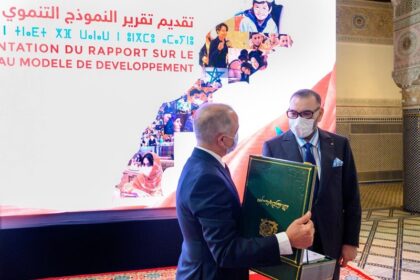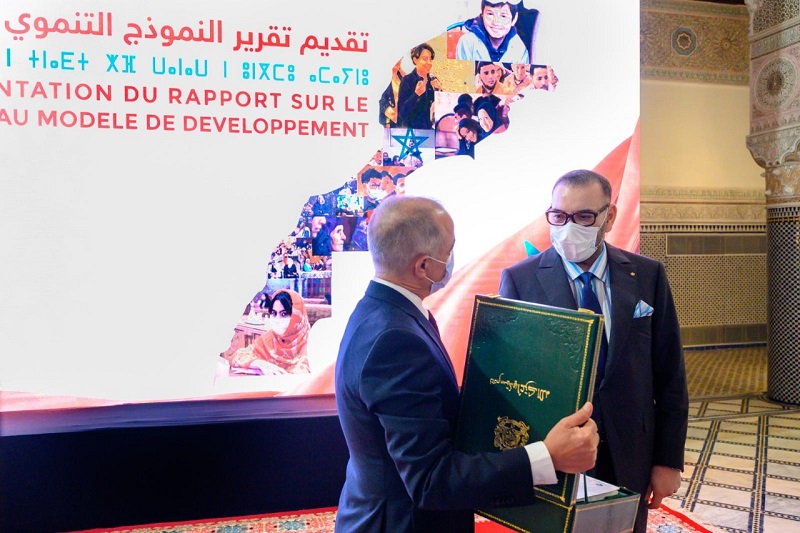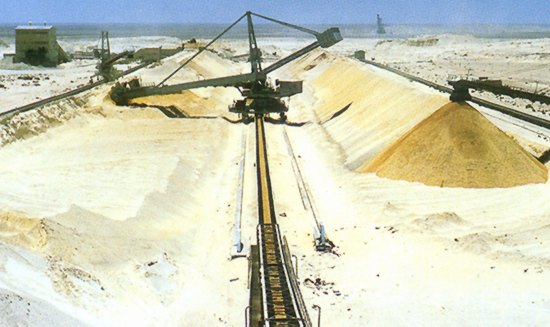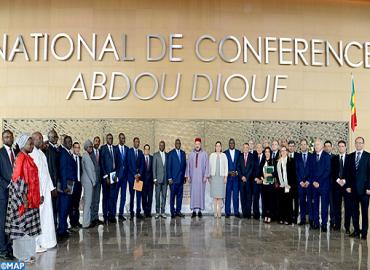 The World Bank has welcomed Morocco’s new development model (NMD), proposed by the Ad-hoc Committee on the Development Model (CSMD), as an unprecedented participatory plan that lays the groundwork for a forward-looking model.
The World Bank has welcomed Morocco’s new development model (NMD), proposed by the Ad-hoc Committee on the Development Model (CSMD), as an unprecedented participatory plan that lays the groundwork for a forward-looking model.
This model establishes the role and responsibilities of each actor, including citizens, in building a “prosperous, plural and open” Morocco, Director of the Maghreb Department at the World Bank Jesko Hentschel told MAP.
A detailed report on the new development model was presented this week to King Mohammed VI, who stressed over the past few years the need to add fresh impetus to Morocco’s development efforts in order to meet the legitimate aspirations of the people to a prosperous state and efficient civil service.
The report is intended to be implemented as a pact bringing together political parties, institutions, the civil society and citizens in order to meet the strategic development goals of the nation.
The report identified the goal of doubling Morocco’s GDP per capita by 2035, meeting World Health Organization standards in terms of health services, improving performance of pupils and students, and promoting women inclusion as well as reducing unemployment.
According to the WB official, the work carried out by the CSMD, combining reflections, analytical work and broad consultations with a range of stakeholders, constitutes a “useful” and “precious” exercise in outlining a new course for the development of the Kingdom.
The NMD offers a transformative vision for the social contract, Hentschel said, noting that the novel coronavirus (covid-19) crisis was a fundamental breaking point that certainly contributed to this new vision.
“The State mobilized itself to protect Moroccan citizens and preserve their lifestyle. A mobilization which has helped strengthen the feeling of trust and belonging, and which today must be perpetuated and consolidated”, he added.
In addition, the WB official said that the public sector can no longer afford to be both a strategist, a regulator, and a provider of services, investments and opportunities.
“Unlocking the potential of citizens and encouraging the participation and commitment of the private sector, local actors, civil society, and stakeholders whoever they are, is today a necessary and more sustainable path to inclusion”, he added.
In addition, Hentschel noted that Morocco is well aware that its ability to become more competitive on the world market and to strengthen the well-being and prosperity of citizens requires a substantial and long-term investment in its most precious resource: the human capital.
It also seems that this capital, with in particular education and health, is the most concerning subject for Moroccans, noted the WB official, specifying that the model places a strong emphasis on building the skills and capacities of citizens so that they all contribute to the development process.
“At the World Bank, we welcome this change already under way for several years. The reform projects already undertaken in this direction are promising, but the challenges are significant, particularly in terms of implementation and coordination, from the central level to the local one”, he said.
The NMD is a bearer of hope and founding principles on which both public authorities and citizens can rely to fully play their roles and focus on the collective achievement of a more prosperous future for Moroccan youth Hentschel said.



